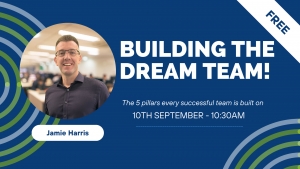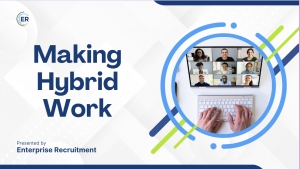Chris Potter
Embedded Software Engineering Case Study
One of our clients in the technical and enginering sector needed more than just recruitment services - they needed a pertner who could work alongisde their team to help them build and complete their engineering team.
-
Senior Embedded Software Engineer
-
Graduate Embedded Software Engineer
-
Embedded Software Engineer
Optics Engineers - August 2025
Are you curious about the current salary trends for Optics Engineers in the UK? Whether you're an employee checking if your earnings are on par with industry standards or an employer aiming to offer competitive salaries, our detailed salary survey provides the insights you need. Explore the comprehensive breakdown of salary ranges across various regions below.
Midlands:
Optics Engineers: £46,000 - £56,000 | Senior: £56,000 - £66,000 | Lead: £68,000 - £82,000 | Principal: £78,000 - £92,000
North East:
Optics Engineer: £43,000 - £53,000 | Senior: £53,000 - £63,000 | Lead: £63,000 - £78,000 | Principal: £73,000 - £88,000
North West:
Optics Engineer: £46,000 - £56,000 | Senior: £56,000 - £66,000 | Lead: £68,000 - £82,000 | Principal: £78,000 - £90,000
Scotland:
Optics Engineer: £43,000 - £53,000 | Senior: £53,000 - £63,000 | Lead: £63,000 - £78,000 | Principal: £73,000 - £88,000
Wales:
Optics Engineer: £45,000 - £60,000 | Senior: £45,000 - £65,000 | Lead: £63,000 - £78,000 | Principal: £68,000 - £88,000
South East:
Optics Engineer: £48,000 - £58,000 | Senior: £58,000 - £68,000 | Lead: £72,000 - £88,000 | Principal: £82,000 - £98,000
South West:
Optics Engineer: £46,000 - £56,000 | Senior: £56,000 - £66,000 | Lead: £68,000 - £82,000 | Principal: £78,000 - £95,000
East Anglia:
Optics Engineer: £44,000 - £54,000 | Senior: £54,000 - £64,000 | Lead: £64,000 - £79,000 | Principal: £74,000 - £89,000
Yorkshire:
Optics Engineer: £45,000 - £55,000 | Senior: £55,000 - £65,000 | Lead: £66,000 - £81,000 | Principal: £76,000 - £91,000
London:
Optics Engineer: £58,000 - £72,000 | Senior: £72,000 - £87,000 | Lead: £87,000 - £105,000 | Principal: £98,000 - £115,000
Is it a match?
Is your existing salary aligned with the standards for your job position? Are you an employer concerned about competitive salaries and what you should be paying? Let us help!
If you're interested in exploring new career options, please submit your CV. Alternatively, if you need support with recruitment, or would like free salary benchmarking across the entire business, submit a vacancy or give us a call!
Please note, these salaries are based on estimation, if you would like a more accurate salary for your business, please get in touch!
Digital Electronic Engineers - July 2025
Are you curious about the current salary trends for Digital Electronic Engineers in the UK? Whether you're an employee checking if your earnings are on par with industry standards or an employer aiming to offer competitive salaries, our detailed salary survey provides the insights you need. Explore the comprehensive breakdown of salary ranges across various regions below.
Midlands:
Digital Electronics Engineer: £48,000 - £58,000 | Senior: £58,000 - £68,000 | Lead: £70,000 - £85,000 | Principal: £80,000 - £95,000
North East:
Digital Electronics Engineer: £45,000 - £55,000 | Senior: £55,000 - £65,000 | Lead: £65,000 - £80,000 | Principal: £75,000 - £90,000
North West:
Digital Electronics Engineer: £48,000 - £58,000 | Senior: £58,000 - £68,000 | Lead: £70,000 - £85,000 | Principal: £80,000 - £93,000
Scotland:
Digital Electronics Engineer: £45,000 - £55,000 | Senior: £55,000 - £65,000 | Lead: £65,000 - £80,000 | Principal: £75,000 - £90,000
Wales:
Digital Electronics Engineer: £45,000 - £60,000 | Senior: £45,000 - £65,000 | Lead: £70,000 - £90,000 | Principal: £65,000 - £80,000
South East:
Digital Electronics Engineer: £50,000 - £60,000 | Senior: £60,000 - £70,000 | Lead: £75,000 - £90,000 | Principal: £85,000 - £100,000
South West:
Digital Electronics Engineer: £48,000 - £58,000 | Senior: £58,000 - £68,000 | Lead: £70,000 - £85,000 | Principal: £80,000 - £95,000
East Anglia:
Digital Electronics Engineer: £46,000 - £56,000 | Senior: £56,000 - £66,000 | Lead: £66,000 - £81,000 | Principal: £76,000 - £91,000
Yorkshire:
Digital Electronics Engineer: £47,000 - £57,000 | Senior: £57,000 - £67,000 | Lead: £68,000 - £83,000 | Principal: £78,000 - £93,000
London:
Digital Electronics Engineer: £60,000 - £75,000 | Senior: £75,000 - £90,000 | Lead: £90,000 - £110,000 | Principal: £100,000 - £120,000
Is it a match?
Is your existing salary aligned with the standards for your job position? Are you an employer concerned about competitive salaries and what you should be paying? Let us help!
If you're interested in exploring new career options, please submit your CV. Alternatively, if you need support with recruitment, or would like free salary benchmarking across the entire business, submit a vacancy or give us a call!
Please note, these salaries are based on estimation, if you would like a more accurate salary for your business, please get in touch!
Embedded Software Engineer - July 2025
Are you curious about the current salary trends for Embedded Software Engineers in the UK? Whether you're an employee checking if your earnings are on par with industry standards or an employer aiming to offer competitive salaries, our detailed salary survey provides the insights you need. Explore the comprehensive breakdown of salary ranges across various regions below.
Midlands:
Embedded Software Engineer: £35,000 - £48,000 | Senior: £50,000 - £65,000 | Lead: £65,000 - £80,000 | Principal: £80,000 - £95,000
North East:
Embedded Software Engineer: £33,000 - £45,000 | Senior: £47,000 - £60,000 | Lead: £62,000 - £78,000 | Principal: £70,000 - £85,000
North West:
Embedded Software Engineer: £34,000 - £46,000 | Senior: £48,000 - £62,000 | Lead: £65,000 - £80,000 | Principal: £72,000 - £88,000
Scotland:
Embedded Software Engineer: £36,000 - £48,000 | Senior: £50,000 - £64,000 | Lead: £68,000 - £82,000 | Principal: £75,000 - £90,000
Wales:
Embedded Software Engineer: £40,000 - £55,000 | Senior: £55,000 - £68,000 | Lead: £70,000 - £85,000 | Principal: £78,000 - £90,000
South East:
Embedded Software Engineer: £42,000 - £58,000 | Senior: £54,000 - £72,000 | Lead: £75,000 - £90,000 | Principal: £80,000 - £95,000
South West:
Embedded Software Engineer: £40,000 - £56,000 | Senior: £53,000 - £70,000 | Lead: £72,000 - £90,000 | Principal: £80,000 - £92,000
East Anglia:
Embedded Software Engineer: £40,000 - £55,000 | Senior: £52,000 - £70,000 | Lead: £68,000 - £85,000 | Principal: £85,000 - £100,000
Yorkshire:
Embedded Software Engineer: £35,000 - £48,000 | Senior: £48,000 - £63,000 | Lead: £68,000 - £82,000 | Principal: £75,000 - £90,000
London:
Embedded Software Engineer: £45,000 - £65,000 | Senior: £60,000 - £85,000 | Lead: £90,000 - £120,000 | Principal: £95,000 - £110,000
Is it a match?
Is your existing salary aligned with the standards for your job position? Are you an employer concerned about competitive salaries and what you should be paying? Let us help!
If you're interested in exploring new career options, please submit your CV. Alternatively, if you need support with recruitment, or would like free salary benchmarking across the entire business, submit a vacancy or give us a call!
Please note, these salaries are based on estimation, if you would like a more accurate salary for your business, please get in touch!
FPGA Engineer Salaries - July 2025 - UK
Are you curious about the current salary trends for FPGA Engineers in the UK? Whether you're an employee checking if your earnings are on par with industry standards or an employer aiming to offer competitive salaries, our detailed salary survey provides the insights you need. Explore the comprehensive breakdown of salary ranges across various regions below.
Midlands:
Junior: £34,000 - £48,000 | Mid-Level: £45,000 - £65,000 | Senior: £60,000 - £80,000 | Lead: £75,000 - £100,000
North East:
Junior: £33,000 - £45,000 | Mid-Level: £40,000 - £58,000 | Senior: £58,000 - £72,000 | Lead: £70,000 - £90,000
North West:
Junior: £33,000 - £45,000 | Mid-Level: £42,000 - £60,000 | Senior: £55,000 - £75,000 | Lead: £70,000 - £95,000
Scotland:
Junior: £33,000 - £46,000 | Mid-Level: £42,000 - £62,000 | Senior: £60,000 - £78,000 | Lead: £75,000 - £90,000
Wales:
Junior: £33,000 - £45,000 | Mid-Level: £40,000 - £60,000 | Senior: £58,000 - £75,000 | Lead: £70,000 - £90,000
South East:
Junior: £37,000 - £55,000 | Mid-Level: £50,000 - £70,000 | Senior: £70,000 - £90,000 | Lead: £90,000 - £115,000
South West:
Junior: £35,000 - £50,000 | Mid-Level: £45,000- £65,000 | Senior: £65,000- £80,000 | Lead: £85,000 - £105,000
East Anglia:
Junior: £35,000 - £50,000 | Mid-Level: £45,000 - £65,000 | Senior: £65,000 - £80,000 | Lead: £85,000 - £105,000
Yorkshire:
Junior: £33,000 - £45,000 | Mid-Level: £40,000 - £60,000 | Senior: £58,000 - £75,000 | Lead: £70,000 - £95,000
London:
Junior: £40,000 - £60,000 | Mid-Level: £55,000 - £80,000 | Senior: £75,000 - £105,000 | Lead: £95,000 - £125,000
Is it a match?
Is your existing salary aligned with the standards for your job position? Are you an employer concerned about competitive salaries and what you should be paying? Let us help!
If you're interested in exploring new career options,please submit your CV. Alternatively, if you need support with recruitment, or would like free salary benchmarking across the entire business,submit a vacancy or give us a call!
Please note, these salaries are based on estimation, if you would like a more accurate salary for your business, please get in touch!
Antenna Design Engineer Salaries - July 2025 UK
Are you curious about the current salary trends for Antenna Design Engineers in the UK? Whether you're an employee checking if your earnings are on par with industry standards or an employer aiming to offer competitive salaries, our detailed salary survey provides the insights you need. Explore the comprehensive breakdown of salary ranges across various regions below.
Midlands:
Junior: £39,000 - £43,000 | Mid-Level: £50,000 - £55,000 | Senior: £60,000 - £66,000 | Lead: £67,000 - £73,000
North East:
Junior: £37,000 - £41,000 | Mid-Level: £48,000 - £52,000 | Senior: £58,000 - £62,000| Lead: £63,000 - £67,000
North West:
Junior: £37,000 - £41,000 | Mid-Level: £50,000 | Senior: £60,000 | Lead: £65,000
Scotland:
Junior: £39,000 | Mid-Level: £48,000 - £52,000 | Senior: £58,000 - £62,000 | Lead: £63,000 - £67,000
Wales:
Junior: £37,000 - £41,000 | Mid-Level: £48,000 - £52,000 | Senior: £58,000 - £62,000| Lead: £63,000 - £67,000
South East:
Junior: £44,000 - £48,000 | Mid-Level: £56,000 - £61,000 | Senior: £72,000 - £78,000 | Lead: £90,000 - £100,000
South West:
Junior: £40,000 - £44,000 | Mid-Level: £52,000 - £56,000 | Senior: £63,000 - £69,000 | Lead: £69,000 - £75,000
East Anglia:
Junior: £40,000 - £44,000 | Mid-Level: £52,000 - £56,000 | Senior: £63,000 - £69,000 | Lead: £69,000 - £75,000
Yorkshire:
Junior: £37,000 - £41,000 | Mid-Level: £48,000- £52,000 | Senior: £58,000 - £62,000 | Lead: £63,000 - £67,000
London:
Junior: £50,000 - £54,000| Mid-Level: £60,000 - £65,000 | Senior: £75,000- £80,000| Lead: £90,000 - £100,000
UK salaries have stabilised in 2025, with London and the South East still leading. Most regions now show more realistic pay bands, especially for senior roles. Employers are focusing on total packages—not just base salary.
Is it a match?
Is your existing salary aligned with the standards for your job position? Are you an employer concerned about competitive salaries and what you should be paying? Let us help!
If you're interested in exploring new career options, please submit your CV. Alternatively, if you need support with recruitment, or would like free salary benchmarking across the entire business, submit a vacancy or give us a call!
Please note, these salaries are based on estimation, if you would like a more accurate salary for your business, please get in touch!
Curious about what it really takes to build a high-performing team—from refining your interview process to shaping a strong, lasting culture?
Join us for our upcoming “Building the Dream Team” webinar, led by our Director, Jamie Harris.
After a fantastic response to Jamie’s live talk at the Hardware Pioneers Max event, we’re bringing the same practical, engaging insights to a wider audience.
He’ll cover the five key pillars every team needs to reach their potential, with actionable advice on everything from hiring to team dynamics.
The 5 Pillars We'll Cover:
- Clarity
- Opportunity
- Interview
- Sourcing
- Culture
About the speaker:
Jamie Harris — Director at Enterprise Recruitment Ltd
Jamie brings 20+ years of leadership experience building and scaling technical and creative teams. His talk at Hardware Pioneers Max received outstanding feedback for its honesty, practical advice, and real-world usefulness.
Reserve your spot now — free to attend, limited spaces.
Can’t make it live? Register anyway and we’ll send you the recording.
Making Hybrid Work
Hybrid working has been — and continues to be — a hot topic. It’s also one of the most sought-after benefits, with 80% of candidates looking for it when joining a new company.
We recently hosted an interactive webinar with engineering specialists and HR professionals to explore whether hybrid working truly delivers results.
The group raised a number of insightful points around hybrid working, including:
-
There is no one-size-fits-all solution
-
Balancing flexibility and productivity is crucial
-
Trust is foundational — treat people like adults
-
The right hybrid model can help solve key business challenges
-
There's a growing trend back toward full-time on-site productivity
-
Clear objectives, defined priorities, and regular check-ins are essential
We also examined the pros and cons of hybrid working and the impact it has on both clients and candidates in the engineering industry.
If you’re considering implementing a hybrid model — or adapting your current setup — check out our latest resource to see what others in the industry are saying.
Simmtronic Case Study
As Simmtronic scales to dominate the intelligent lighting systems market, they needed more than just a recruiter—they needed a strategic partner.
That’s where we came in.
About Simmtronic:
Simmtronic provides high-end, intelligent lighting control solutions for commercial buildings, with the ambition of becoming the market leader in their industry
Key Roles Filled:
- CAD Design
- Electronics Production
- PCB Testing
- Specifications Engineer
Our Solution:
A blend of data-driven sourcing, deep industry knowledge, and hands-on engagement. From tackling salary inflation to unearthing local talent in a candidate-short market, we delivered results where others couldn't.
We were thrilled to host a webinar with Dr. Amanda Potter, an international speaker, researcher, and creator of the Chief Psychology Officer podcast, who shared invaluable insights on building personal resilience, avoiding burnout, and fostering resilience within teams.
About Dr. Amanda Potter
Amanda is an award-winning Leadership and Executive Coach, Chartered Psychologist, and Certified Principal Business Psychologist with over 25 years of experience. She has worked extensively with C-suite and senior executives to help them drive strategic success.
Amanda’s expertise lies in enabling leaders to maximize their potential, prepare for the next role, manage and lead high-performing teams, and identify and address blockers, risks, and flaws. Known for her ability to navigate complex behavioural challenges, Amanda approaches her work with a direct, fair, calm, yet challenging style, helping her clients see themselves and their teams from new perspectives.
Key Takeaways from the Webinar
Participants gained insights into:
- What stress is
- The science behind it
- How to identify symptoms of stress
- Practical strategies for building resilience
If you’d like to learn more about the event, (Including the recording) or access resources from the session, please get in touch!











